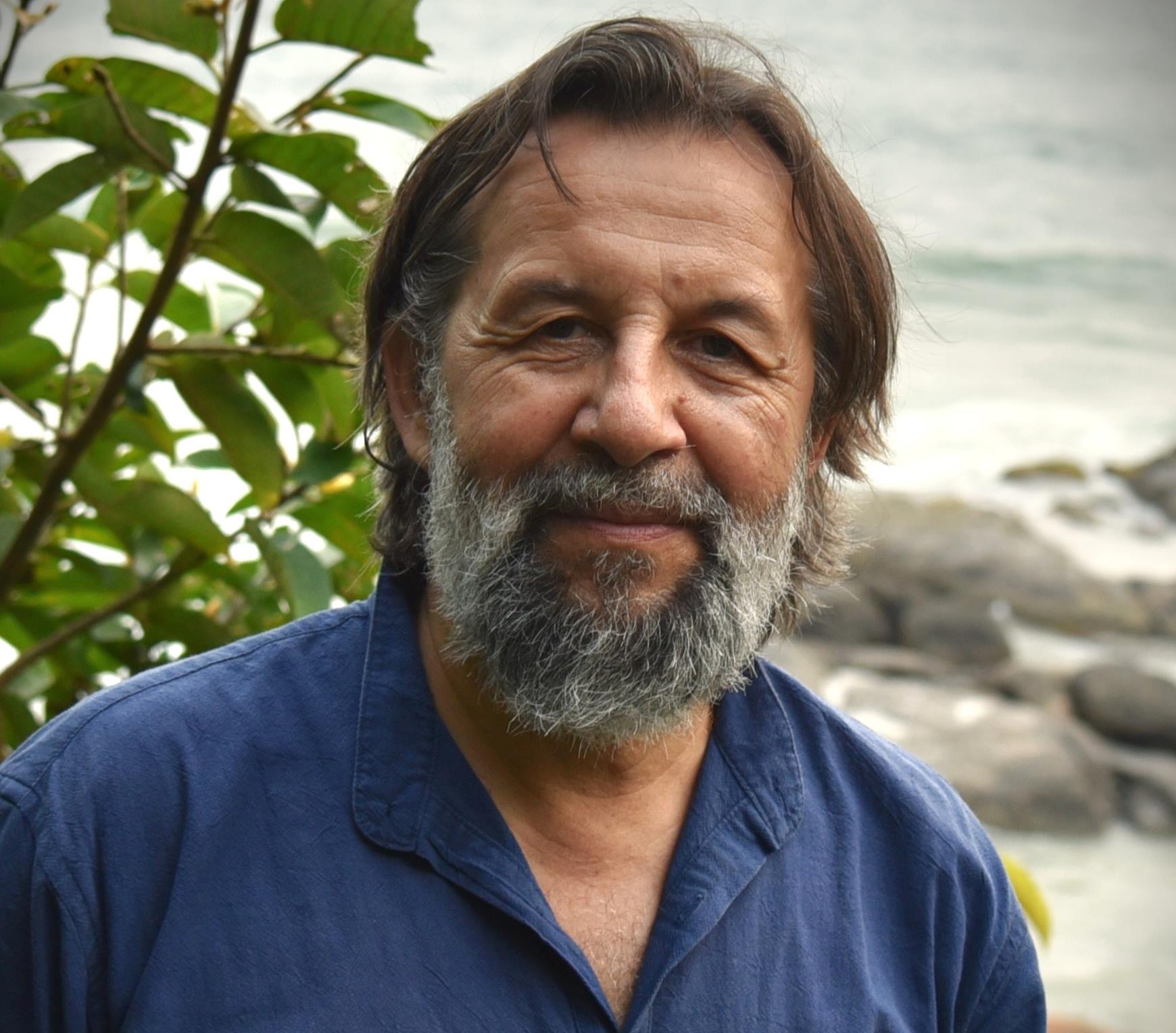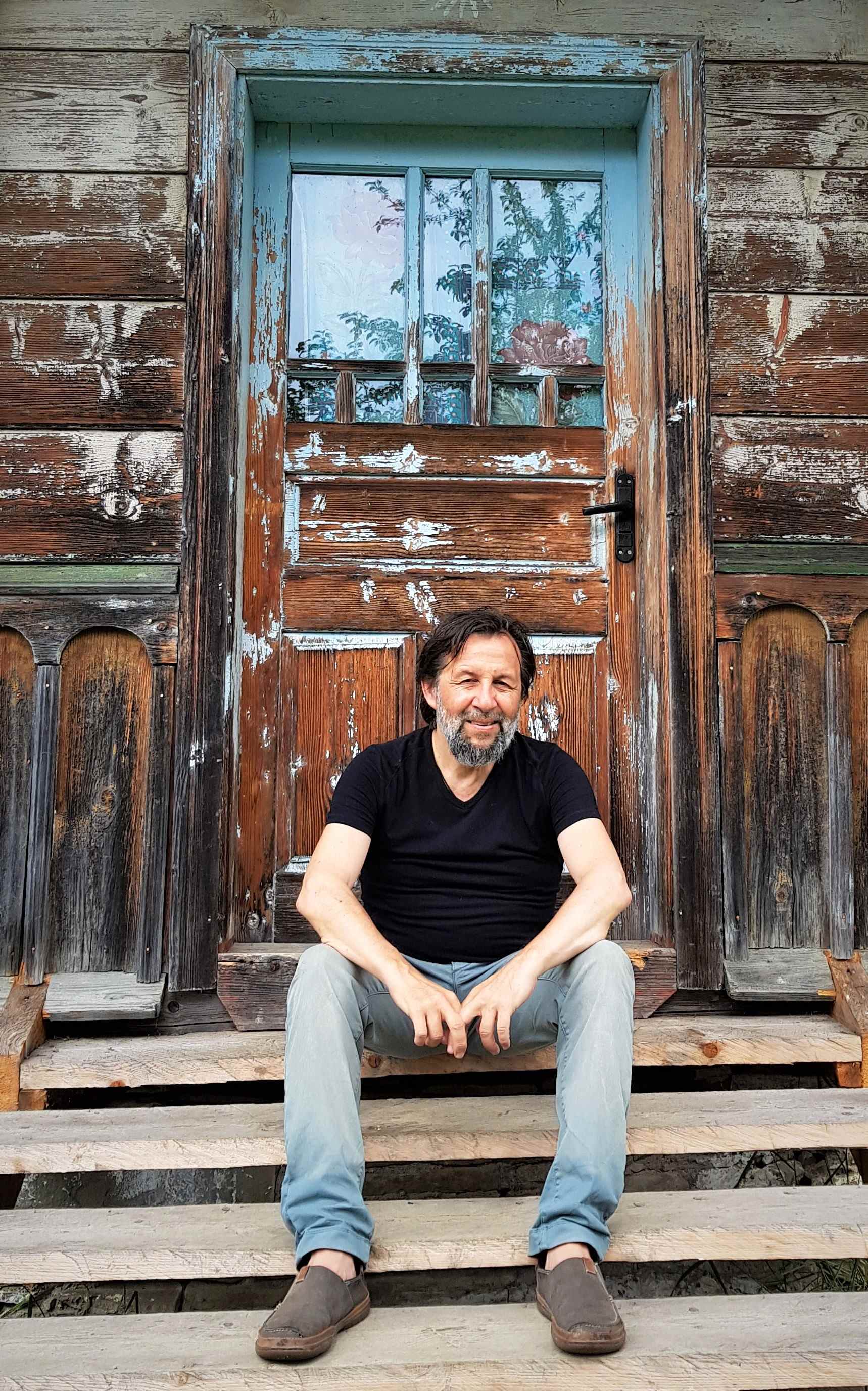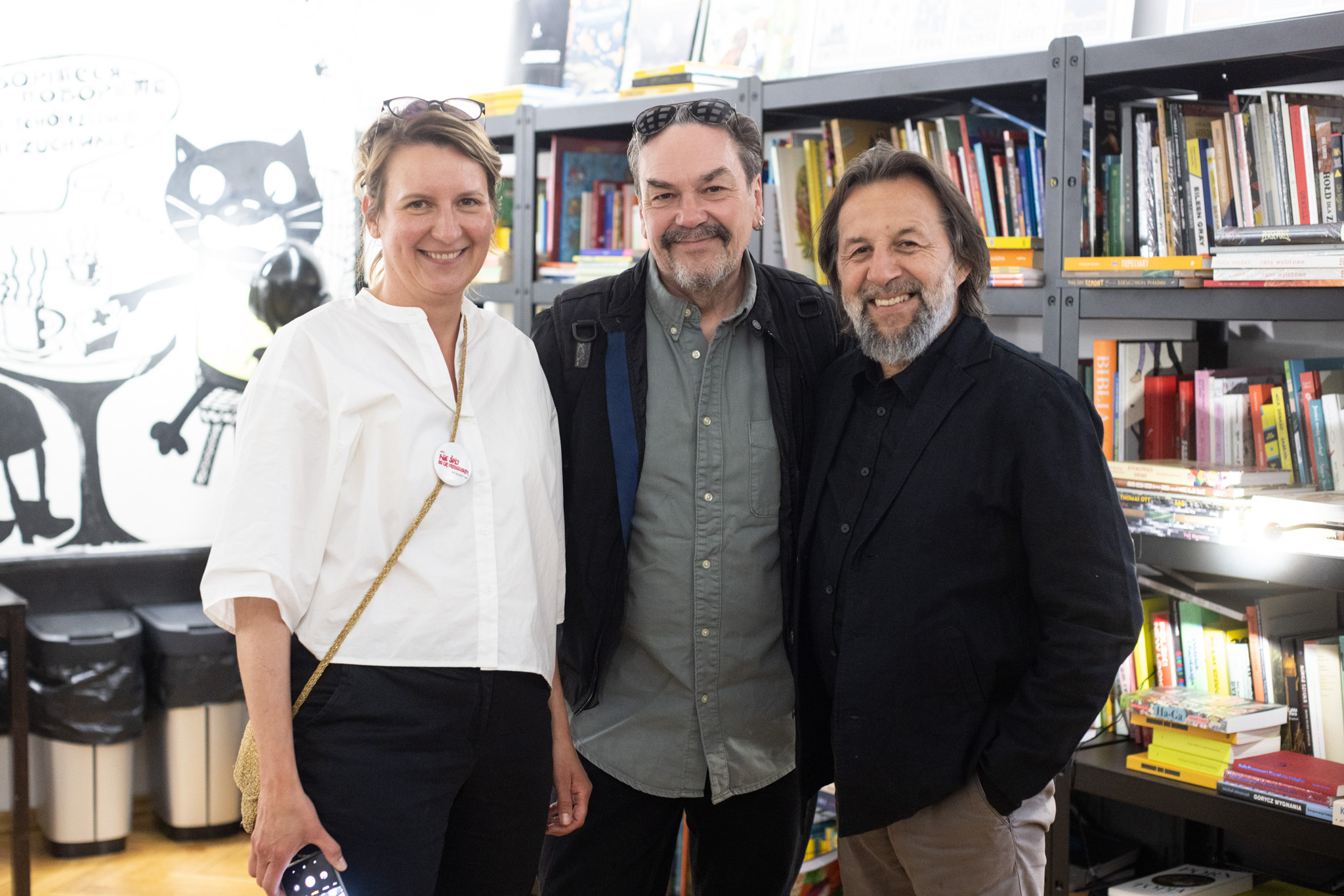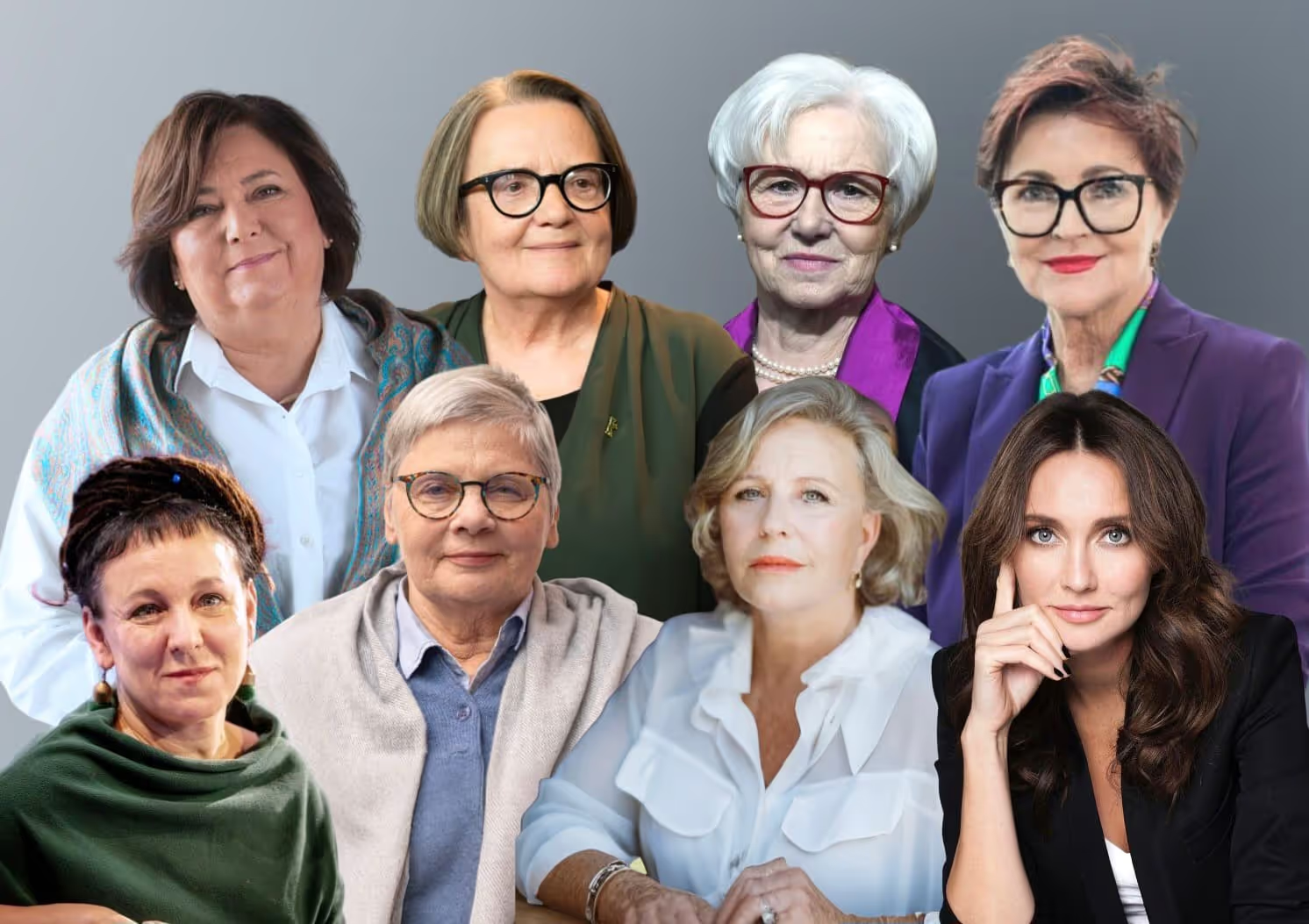Support Sestry
Even a small contribution to real journalism helps strengthen democracy. Join us, and together we will tell the world the inspiring stories of people fighting for freedom!
Tim Mak: So are you calling it “Autocracy Inc.” or “Autocracy Incorporated”?
Applebaum: I mean, Autocracy Inc. sounds cooler. The only problem with it is that, you know, when you hear it, it sounds like it could be I-N-K. You know, Autocracy Ink!
I like that. I think the double meaning actually makes your book like three levels cooler.
The reason why the book has that title is that I spent a long time searching for a metaphor.
The relationship between modern autocracies: they are not an alliance, they are not a bloc. I don't even think they're an axis because axis implies some kind of coordinated activity. What they are more like is a huge international conglomerate within which there are separate companies that cooperate when it suits them, but otherwise do their own thing.
And I think that's the best way to describe a group of countries who have nothing in common ideologically. You have communist China, nationalist Russia, theocratic Iran, Bolivarian Socialist Venezuela… You have these actually quite different styles of leadership and different ways of claiming legitimacy, but they do have a few things in common. One of them is the way in which they use the international financial system. Unlike the most famous dictators of the twentieth century, most of the leaders of these countries are very interested in money, and in hiding money, and in enriching people around them.
They dislike the democratic world. They dislike the language that we use. They don't want to hear any more about human rights or rights at all.
You know, the right to freedom of speech or the right to a free press. They also don't want to hear about transparency. They prefer to conduct their affairs behind a veil of secrecy. They don't want institutions that expose them, whether those are domestic or international.
And all of them see the language of transparency and rights as their most important enemy, whether mostly because that's the language that their domestic opponents use, whether it's the Navalny movement in Russia, or whether it's the Hong Kong democrats in China, or whether it's the complex Venezuelan opposition — they all use that kind of language, because they all understand that those are the things they are deprived of.
Autocracy Inc. is an attempt to encapsulate that group of countries.

And you write a lot about how they've created this network to steal, to launder funds, to oppress people, to surveil, to spread propaganda and disinformation. I read with great interest your argument that this is not Cold War 2.0. Because you argue that ideals are too disparate, they don't have a unified ideology.
But I also found that as I was reading your book, I sensed a sort of underlying ideology that does kind of bring all these countries together: China, Russia, Iran, North Korea. It’s more of a worldview. It’s less of a prescriptive ideology.
But it is this worldview of nihilism and cynicism and hopelessness – a sort of future where the truth is impossible to know, so the public shouldn't even bother trying to find out. Isn’t that what unifies this bloc of anti-Western countries?
I think you're right that those feelings are what they want to induce in their populations and maybe our populations too. They want people to feel that politics is a realm of confusion and something they can't understand.
They want people to feel cynical and apathetic. They want people to stay out of politics. Authoritarian narratives and authoritarian propaganda vary between a kind of advocacy for the supposed stability and safety of autocracy, as opposed to the chaos and degeneracy of democracy. It sort of varies between that and the Russian version, which is streams of lies so that people feel confused and disoriented and they don't know anymore what's true and what's not.
So you're right that aligns them. You could also say that another thing that aligns them is a kind of anti-enlightenment view of the world, and they don't want rational thinking or science. They want to be free of any checks and balances.
They want to be free of any obligation to report or respond to the truth. They want to mold and shape the world, according to their somewhat different personal visions.
That's the way they approach the world. So there are things that unify them. There are also things that make them different.
My goal is to not to claim that they're all the same. But they do have some similar goals, and they share certain interests.

Using that, though, can we conceptualise what's happening now in the world as the start of a new Cold War, or do you still think that's the wrong way to look at the problem?
I think that's the wrong way to look at the problem. It's true that it's a war of ideas. But to say the Cold War implies a geographical separation, a Berlin Wall and it also implies unity on both sides, which we don't have on either side, actually.
And there is also a lot of the world that doesn't really belong in either camp or switches back and forth. There are a lot of complicated countries like India or Turkey or the Gulf states, which play different roles. Sometimes they align with one side, sometimes they align with another.
And I also want to stress that something I just said, and I'll emphasise it again, that people who align with the autocratic worldview are found inside democracies, and they aren't a fringe.
In the United States, they dominate the Republican Party, which is one of our two great political parties. In other countries, they play an important role in political coalitions.
The countries you mentioned as being part of Autocracy Inc.: China, Russia, Iran, North Korea, and you also add countries like Mali and Zimbabwe as other examples of countries that might fall under this banner. They don't really strike me as innovative, growth places. They don't really strike me as where the future lies. Just to play devil's advocate here, why should we be concerned about them?
First of all, I do think China is a place that's innovative and is very interested in the future of AI and is putting a lot of money into it. So that's a big parenthesis.
You're certainly right that Mali isn't really a model for anybody.
I don't even think Russia is a model of a society that people want to live in or admire. But we do need to care about them because they care about us.
Although they're not that attractive, they are capable of doing a lot of damage. So their vision is negative. They're very focused on us. They want to undermine us.
Maybe people in London or Paris or Madrid don't wake up in the morning and feel threatened by Russia, China, and North Korea. But there are people in North Korea who wake up every morning and think about us. They're interested in affecting our politics. They're interested in challenging the weaker democratic states.
The Iranian proxies in the Middle East are interested in challenging and overturning the order in the Middle East. They have both military and propaganda and other sources of disruption that they are willing to use against us. We might not want to care about them or think about them, but I didn't think that we have a choice anymore and the evidence is all around us.
And let me just say a word about Ukraine. Why did Russia invade Ukraine? Part of the reason is that Putin, he's a megalomaniac and he has an idea of himself as the leader of a restored Russian empire, and he's used that language in the past.

But he also did it because Ukraine felt to him like a challenge, an ideological challenge. Ukraine was another large Slavic country that had been very corrupt. It was heading very much in the direction that Russia went, becoming very much like that, and was very dominated in many ways in the business sphere, in particular by Russia.
And yet the Ukrainians organised and through civic activism, they overthrew that regime, they changed it, and they created a democracy. Sometimes it seems like a pretty rocky democracy, but it's a democracy, nevertheless.
And they, even during the war in Ukraine, have a sense of freedom of speech and ease of conversation that you don't have in Russia and haven't had in Russia for many years
So the model that Ukraine presents, of a country that's aiming to be integrated into Europe that would like to be part of the democratic world, is very threatening to Putin, because the scenario that he has been most afraid of, unlikely though maybe it now seems, is exactly the 2014 Maidan scenario. He's afraid of civic activism organizing to somehow overthrow or threaten him.
The scenes of the people swarming Yanukovych's golden palace at the end of the Maidan revolution must have frightened him because that's what he's afraid of. And so crushing Ukraine is also about crushing that idea and showing Russians that that's not going to work and we're not going to let that kind of country survive.
And the other purpose of the war was to say to America and Europe and the rest of the democratic world: «we don't care about your stupid rules. And we're not bothered by this norm that you say existed since 1945, that we don't change borders in Europe by force. We're not interested in that. And we're going to show you that it doesn't matter. And we're also going to show you that all your language about never again, there'll never be concentration camps, there'll never be torture and murder in Europe – we're going to show you that we don't care about that either.
We're going to set up concentration camps in occupied Ukraine. We're going to kidnap children, take them away from their parents or the institutions they live in. We're going to make them into Russians. And we're going to continue with this project of destroying Ukraine as a nation and as a state».
And that's a deliberate challenge to the way that the Western world thinks
I keep using the word Western. It’s an old habit, but Western is the wrong word – [I should be saying,] the democratic world.
Ukraine is obviously subject to this physical violence that you've outlined. It's also constantly subject to the propagandistic efforts of Russia through things from troll farms, through narratives that they're trying to spread, and dissent within the society. I was really taken by one anecdote you put in the book - [which has] Bill Clinton giving a speech in 2000 and saying, as a joke, that China has been trying to crack down on the internet and everyone in the room laughs.
…And it was, it was at Johns Hopkins University. You know, it was a room full of people who do political science and foreign policy…
…Smart, smart people who think a lot about the future, and Bill Clinton said that trying to crack down on the Internet was like trying to nail jello to the wall.
And so thinking about the developments in politics around the world over the last decade, it really does seem that at the core of this book is an idea: that this original promise of the Internet, a globalised world that would be connected and freed from government surveillance and control, that that original promise is kind of dead.
I know the jury's still out, but I want to get a sense from you: was the development of the Internet over the last decade fundamentally a net positive benefit for human freedom?
The Internet is a reflection of human nature in a certain way. It was an expansion of already existing trends. So it's hard for me to say, to talk about the Internet as a whole, being good or bad.
I mean, it's just a reflection of what we are like. I think we can say pretty clearly now about social media, which is a particular piece of the Internet, has created a kind of chaos.
It fundamentally changed the way that people understand the world, particularly the political world and political information.
So the way that people now get information is through short bursts of messages on their phone.
And it's also become just much, much easier to create instant propaganda campaigns. The Soviet Union actually used to run what we now would call active measures or fake news campaigns. There's a famous one that grew up around the AIDS virus. They had started a conspiracy theory that the AIDS virus had been an invention of the CIA and they planted it.
The idea was to make a kind of echo chamber where people would hear it from different places and people would believe in it. And I think it had some impact. I think some people around the world believed it.
You can now do a campaign like that in an hour.

You mentioned how the Internet was a reflection of human nature. And there is an assumption that democracy and freedom are natural human callings and that we're kind of drawn to it by the nature of what humanity is.
But you can also see if you look around the world that a lot of people are willing to give up their own freedom for a sense of security, or to give up some freedom as long as the government imposes their view of the world on other people they don't happen to like.
And I wonder if you've grappled with or changed your view on the nature of human beings in the last decade or so.
So my previous book, which is called Twilight of Democracy, was much more about this. It was about the attraction of authoritarian ideas and specifically why they're attractive to people who live in democratic countries.
The more you stare at history books and the deeper you look at the origins of our modern democracies, the easier it is to see that most of humanity through most of history has lived in what we would now describe as autocracy, monarchies, dictatorships.
Democracies are the exception. There are very few of them. Most of them fail. I think almost all of them have failed at one point or another. They require an enormous amount of effort to keep going and to maintain. Even the ancient scholars, even Plato and Aristotle, wrote about how democracies can decline. So it's not as if this is even a modern phenomenon.
Forms of democracy that were known in the ancient world were also considered to be always at risk of being destroyed by the appeal of a strong man or by disintegration. So I don't think democracy is at all normal.
I think it's probably abnormal. And the attraction that people feel for, you know, for dictators doesn't surprise me at all.
Let’s place Autocracy Inc. in the context of the ongoing situation in the United States right now. We're speaking right after Donald Trump has survived a shooting attempt and a convention where he seems to have unified the Republican party.
You write near the end of the book about Trump that «if he ever succeeds at directing federal courts and law enforcement at his enemies... then the blending of the autocratic and democratic worlds will be complete».
It doesn't seem like you're super optimistic about what might happen next.
What worries me honestly about Donald Trump is the affinity that he has shown for the dictators that I'm writing about. It's not like it's a secret or you have to look at classified documents.
He talks openly about it, his admiration for Xi Jinping, his admiration for Putin, his admiration even for the North Korean dictator who's destroyed his country.
It's a poor, sad, repressed country in contrast to vibrant, successful South Korea. Yet, Trump admires him because he's brutal and because he stays in power for a long time, I guess.
The second piece of it is that I worry about Trump’s transactional instincts, particularly in a second term, if he were to win. Trump is not interested in an alliance of democracies or a community of values or America playing a role in supporting the stability and viability of democracy around the world.
He's mostly interested in himself. He's interested in his own money. He's interested in his own perceptions of him. He's interested in his own political stability and right now, he's interested in staying out of jail.

I would be afraid of that in a second term, when he feels much less constrained, that his interests in his own finances and his children's finances would be one of the prime drivers of his foreign policy. In that sense, he would already be like one of the dictators that I've written about.
He could also, you know, he might also be looking to do deals that benefit business people around him.
And I don't know what joining Autocracy Inc would look like. It's not that there would be some pact between America and Russia or America and China, or maybe there would be, but it’s not necessary at all. It's simply that we would begin to behave like those dictatorships.
And our leaders would begin to behave like the leaders of those dictatorships and we're not that far away from it. So it's not difficult to imagine at all.
Just to wrap up this conversation, you dedicated this book to «the optimists», and I have to admit that I'm having a hard time identifying in that camp right now. And so I'm trying to understand, you know, how do we fix the trajectory of the world that you've identified here? Is it fixable? How do we turn away from, you know, a sort of nothing matters worldview towards something more hopeful and more democratic?
I think the short answer involves a lot of people. Everyone. You, me, everyone reading to think about how they can be engaged in whatever country they live in.
How do you engage in your democracy? How do you play some kind of role? How do you support and insist on supporting the rights that we're all guaranteed in our constitutions? How do you convince others of why that's important?
It's very important to vote. It's very important to participate in the electoral process in other ways. And that's the best advice I can give ordinary people.
I have a whole laundry list in the book of things that governments could do, and they start with the elimination of the institutions that enable kleptocracy in our own societies. That seems to be the easiest and first thing that we can do.
But I think ordinary people can also, through their own participation, make a difference.
The original interview titled «Are We in Cold War 2.0?» appeared on the Counteroffensive.news website.
The book will be released in Polish on September 12 by the 'Agora' publishing house.








